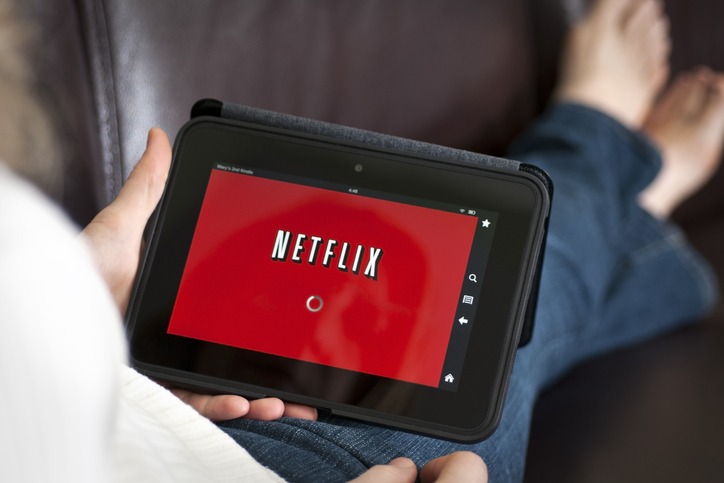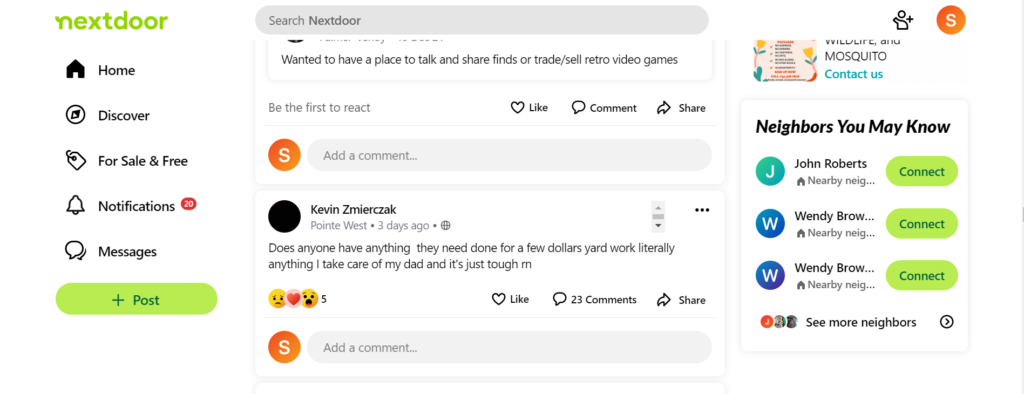Netflix to stop password sharing (for real), social media is taken over by brands and more
Plus: People can’t always distinguish between human and AI writing.

With bated breath, Netflix users are preparing as the company plans to put a stop to password sharing. In a recent letter to investors, Netflix talked about rolling out paid sharing soon, according to Mashable.
“Paid sharing is another important initiative as widespread account sharing (100M+ households) undermines our ability to invest in and improve Netflix for our paying members, as well as build our business,” according to the Netflix letter “We’re pleased with the results of our Q1 launches in Canada, New Zealand, Spain and Portugal, strengthening our confidence that we have the right approach.”
While Netflix is anticipating blowback from customers who might cancel their subscriptions, they’re expecting growth in membership as customers adjust to the paid sharing change. They also expect customers who may cancel to resume their membership later on, according to the Netflix report.
Why it matters: This is take two for Netflix on the password-sharing front. Their announcement earlier this year bombed because of mixed communications and missed opportunities to state their intentions when questions arose about password-sharing limits.
Netflix’s announcement doesn’t have to be a PR nightmare this time around. The move is certain not to be popular, but clearly sharing what customers can expect with the paid sharing updates will go a long way. They can also learn from their efforts from overseas rollouts.
It’s certainly a busy time of change for Netflix, as they also announced plans to finally do away with their DVD-by-mail business.
Humans can’t always easily spot AI writing
“Can people tell the difference between human and AI writers and does this affect their trust in brands?”
That question kicked off a Tooltester survey’s findings, which revealed that out of over 1,900 Americans surveyed, nearly half could not distinguish between human and AI-generated writing in the health, finance, entertainment, technology and travel sectors.
Some important survey findings include that over 53% can’t fully identify AI-generated content. This number jumps to 63.5% when a GPT-4.0 model is used, the survey adds.
“AI-generated health content was able to deceive users the most,” according to the survey, as 56.1% of people thought it was written either by a human or a human edited it.
![]()
In the technology field, people properly correctly identified AI-generated content 51% of the time.
Most people (46.5%) said they would be OK with AI advising them on health and financial topics, however, a separate 42.9% said they would only use such advice if a human had edited and reviewed the content.
Why it matters: “More than seven in 10 said they would trust a brand less if they were given AI-generated content without being told so,” according to a Tooltester press release.
As AI popularity continues to grow, brands must be mindful of how they are sharing using AI in their communications. Being upfront about exactly how and where AI is used adds an element of trust, which for humanity, goes a long way.
Social media changes boost brands but impact user experience
The landscape of social media is not what it used to be as brands are prioritized and users feel like they’re getting the short end of the stick with less relatable content, the New York Times reported.
Per the Times:
“Nearly two decades ago, Facebook exploded on college campuses as a site for students to stay in touch. Then came Twitter, where people posted about what they had for breakfast, and Instagram, where friends shared photos to keep up with one another. Today, Instagram and Facebook feeds are full of ads and sponsored posts. TikTok and Snapchat are stuffed with videos from influencers promoting dish soaps and dating apps. And soon, Twitter posts that gain the most visibility will come mostly from subscribers who pay for the exposure and other perks.”
“Platforms as we knew them are over,” University of Illinois-Chicago Communications Professor Zizi Papacharissi, said in the article. “They have outlived their utility.”
Now, users are looking for smaller platforms with a more targeted audience that center around hobbies and topics, like Nextdoor and Truth Social.

Why it matters: PR pros face a Catch-22. We want to promote our brands, but we don’t want to drive users away from the platforms where we’ve established a base. Remember the good old days of aimlessly scrolling and enjoying non-monetized content?
This is the time for PR pros to think about how community-geared apps can be a more direct approach to connecting with segments of the public while building a plan of action to prep for a possible shift as weary social media users are looking elsewhere to scroll. It’s also a reminder to create content that doesn’t feel like an ad. Create value and earn your place on users’ timelines.
USPS warns customers of fraudulent use
The iconic blue post office drop boxes are becoming a free-for-all for scammers as the USPS has sounded the alarm on identity theft cases originating from people stealing mail those boxes, MassLive reported.
“The rise of identity theft has criminals targeting your mail. And there’s no better way to get to that mail – and the information it contains – than directly at the U.S. Post Office,” according to the article. “Postal officials said the groups of criminals across the country are using the internet and social media to coordinate strategic targeting of Post Office collection boxes.”
To avoid being a victim of identity theft, USPS officials are asking people to avoid depositing mail during the last collection of the day, during Sundays and on federal holidays according to the article.
Why it matters: The USPS offers a plethora of tips on how to prevent mail theft on their website with suggestions on how to keep one’s mail secure when depositing it.
The USPS’ communications push to tell customers what to do and alternative mailing options helps put the power back in their hands to help them keep their information safe.
Sherri Kolade is a writer at Ragan Communications. When she is not with her family, she enjoys watching Alfred Hitchcock-style films, reading and building an authentically curated life that includes more than occasionally finding something deliciously fried. Follow her on LinkedIn. Have a great PR story idea? Email her at sherrik@ragan.com.
COMMENT
One Response to “Netflix to stop password sharing (for real), social media is taken over by brands and more ”
PR Daily News Feed
RECOMMENDED READING
Tags: Netflix








This report focuses on a question management asks us but doesn’t give us the equipment to always answer correctly.
The question is what’s gonna happen. The equipment we’d need to always answer correctly: a crystal ball. But as this report points out, PR foresight in this case presents a reassuring double answer: (1) growth in membership as customers adjust to the paid sharing change, and less obviously (2) some customers who cancel “may renew their membership later on.”
So PR may sometimes win management’s admiration with a double answer to management’s question of what’s gonna be: what will happen soon and what will likely happen later on. Many managements pay beautifully for PR people who can look ahead.